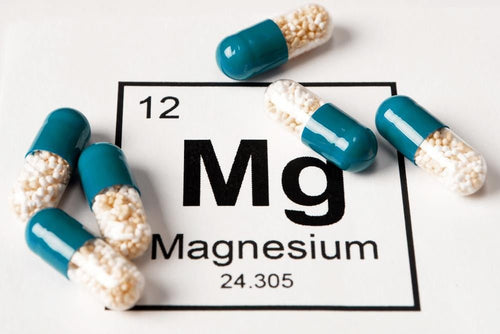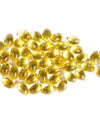Flax seeds do not only have an effect on breast cancer, but there is also research showing how to use flax seeds to fight prostate cancer.
Patients with prostate cancer, who were scheduled for surgery to remove the prostate, were randomly assigned to either their usual diet, a diet supplemented with 30 g of flax seeds daily, a low-fat diet or a flax seed supplemented low-fat diet (Demark-Wahnefried W, et.al., 2008).
Male patients followed this protocol for approximately 30 days.
It was found that the cell growth rates of cancer cells were significantly lower in the participants using the flax seeds when compared to the ones on the control diet.
This was only after using the flax seeds for 30 days.
The researchers concluded that flax seeds are both safe and associated with alterations that may be protective for prostate cancer.
After that, men were scheduled for repeat of prostate biopsy in the following study (Demark-Wahnefried W, et.al., 2004).
These men also needed to follow a low-fat diet and include 30 g of flax seeds per day for 6 months. At the end of 6 months they had their follow up biopsy.
The results showed significant decreases in cholesterol and PSA (prostate-specific antigen). The male participants did not show any significant change in total testosterone. PSA is a measurement of improvement or worsening in someone with prostate cancer or at risk for prostate cancer.
This study did not evaluate the effect of the low-fat diet separately. But, we know now that the major benefits are from the flax seeds.
In addition, an earlier study showed similar results (Demark-Wahnefried W, et.al., 2001).
The majority of studies on the lignan found in flax demonstrates interferences with the development of some major diseases. These diseases also include prostate cancer (Imran M, et.al., 2015).
It is amazing how you can use flax seeds to fight prostate cancer.
It’s easy and inexpensive to incorporate, and research has documented some impressive benefits.
References:
Imran M, Ahmad N, Anjum FM, Khan MK, Mushtaq Z, Nadeem M, Hussain S. Potential protective properties of flax lignan secoisolariciresinol diglucoside. Nutr J. 2015 Jul 28;14:71. doi: 10.1186/s12937-015-0059-3.
Demark-Wahnefried W, Polascik TJ, George SL, Switzer BR, Madden JF, Ruffin MT 4th, Snyder DC, Owzar K, Hars V, Albala DM, Walther PJ, Robertson CN, Moul JW, Dunn BK, Brenner D, Minasian L, Stella P, Vollmer RT. Flaxseed supplementation (not dietary fat restriction) reduces prostate cancer proliferation rates in men presurgery. Cancer Epidemiol Biomarkers Prev. 2008 Dec;17(12):3577-87. doi: 10.1158/1055-9965.EPI-08-0008.
Demark-Wahnefried W, Robertson CN, Walther PJ, Polascik TJ, Paulson DF, Vollmer RT. Pilot study to explore effects of low-fat, flaxseed-supplemented diet on proliferation of benign prostatic epithelium and prostate-specific antigen. Urology. 2004 May;63(5):900-4.
Demark-Wahnefried W, Price DT, Polascik TJ, Robertson CN, Anderson EE, Paulson DF, Walther PJ, Gannon M, Vollmer RT. Pilot study of dietary fat restriction and flaxseed supplementation in men with prostate cancer before surgery: exploring the effects on hormonal levels, prostate-specific antigen, and histopathologic features. Urology. 2001 Jul;58(1):47-52.








